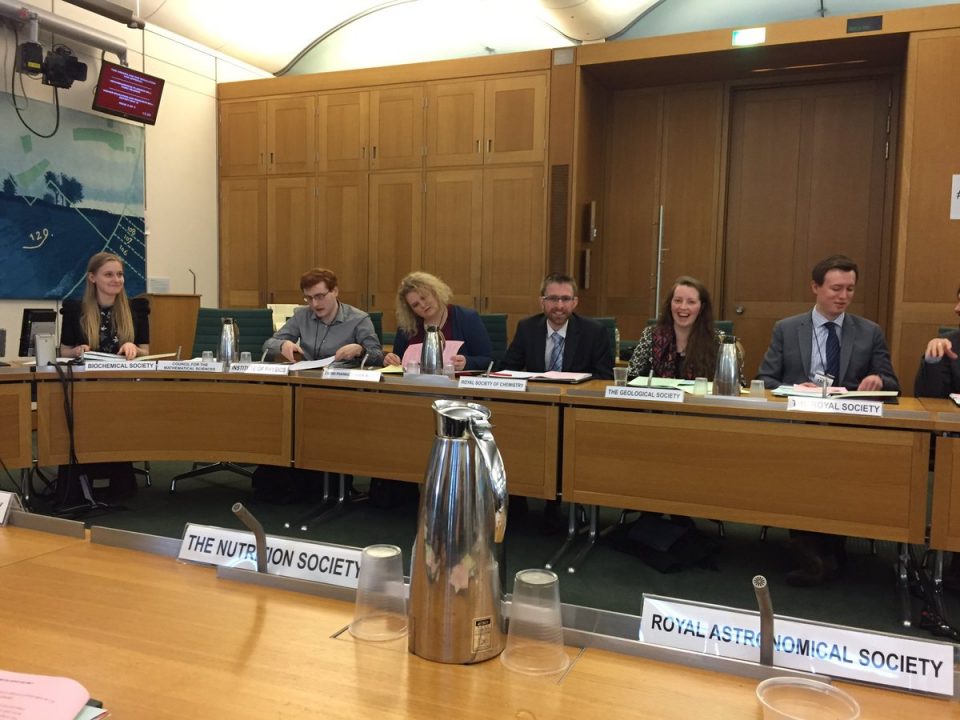
If you had the chance to ask an MP one question, what would it be?
A few weeks ago I blogged about writing to your MP as an act of civic responsibility. Yesterday, alongside dozens of other young scientists and engineers, I was given the amazing privilege and opportunity to ask an MP a question directly.
House of Commons select committees are small committees of MPs. Their job is to scrutinise the government on behalf of parliament, and they do this by inviting witnesses to testify before the committee. In these meetings, the committee sit around a famous horseshoe-shaped table, with a witness placed in the ‘hotseat’ in front of them. An infamous example from recent memory is the grilling Sir Philip Green faced from the Business, Innovation and Skills committee over the BHS pensions scandal.
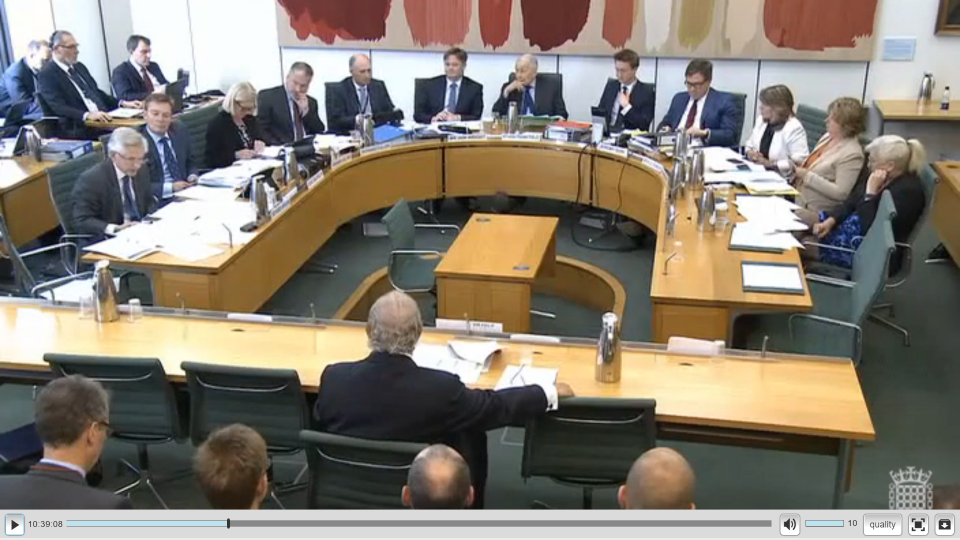
The Science and Technology Committee is another such committee, charged with scrutinising science-related government policy, from the environment to education to research funding and beyond. They meet and hear from all sorts, including academics and experts. But yesterday, the tables were turned for the Royal Society of Biology’s fifth annual Voice of the Future event.
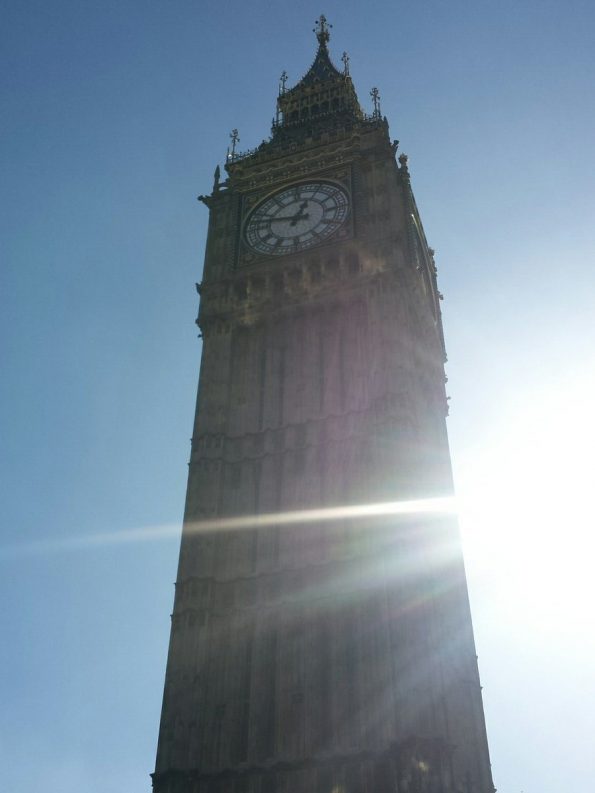
At this event, young scientists from several of the UK’s learned societies such as CaSE, the Biochemical Society, and even two high schools, were invited to Parliament to reverse the usual format of the select committee, and ask the committee members key questions on science and tech policy issues taken from the suggestions of young scientists.
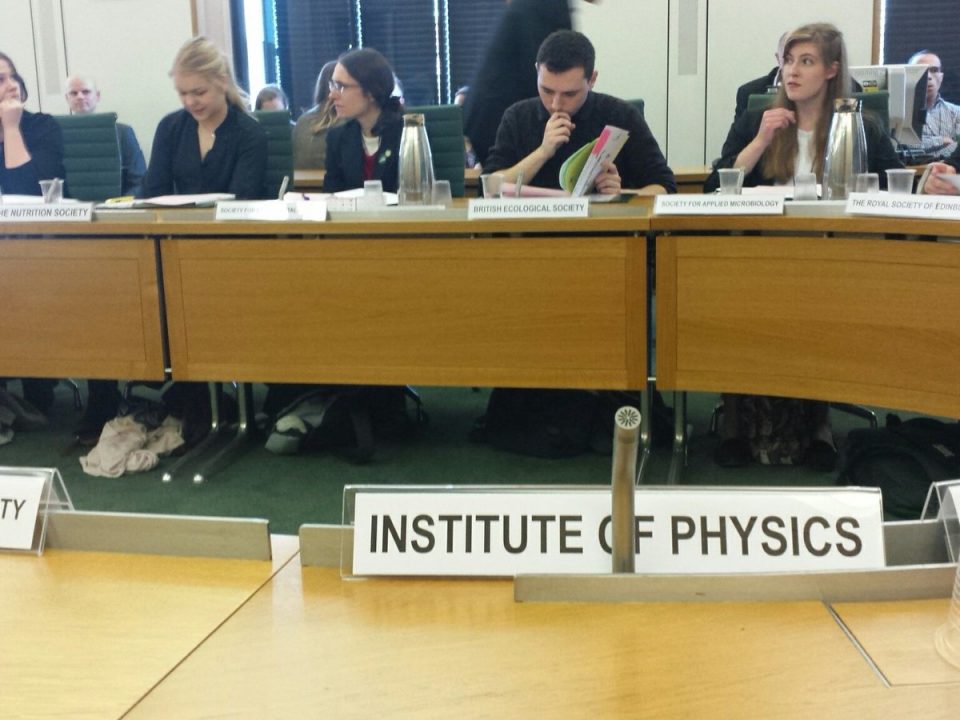
As the RSB’s director of parliamentary affairs Dr Stephen Benn (brother of Hilary Benn!) noted:
“This is a unique event – in no other part of Parliament is the normal select committee format completely reversed so that MPs have to answer questions rather than ask them. It is important that policy makers use reliable evidence in their decisions, and today’s young scientists and engineers will be vital for this in the future.”

The event had four parts. First, Chi Onwurah, Labour MP for Newcastle Central & Shadow Minister for Industrial Strategy, was put in the hotseat and asked questions. Then she was replaced by Professor Sir Mark Walport, Chief Scientific Adviser to the government, followed by Tory Minister for Universities and Science Jo Johnson MP (brother of Boris Johnson!), and finally by members of the committee proper: four MPs led by Tory MP Stephen Metcalfe.
Thanks to a last-minute drop out from one of the scheduled attendees from the Institute of Physics, I was given the opportunity to come to the event and ask a question to Chi Onwurah MP and hear her reply. You can watch it at this link (14:24:30 – 14:26:27).
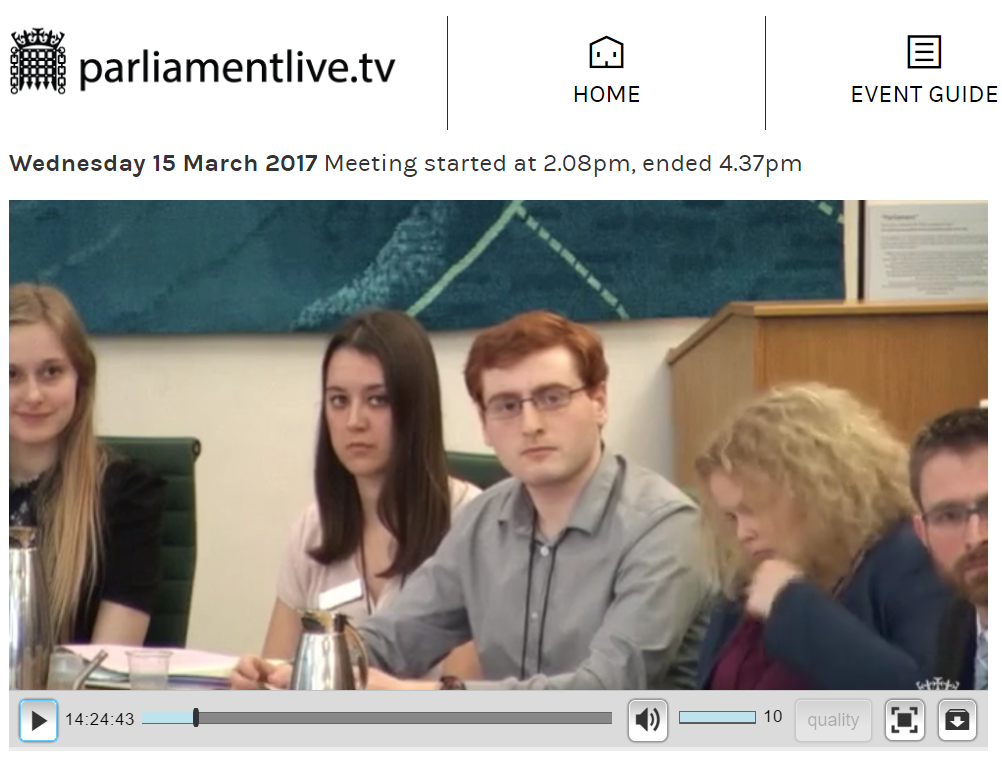
After her session ended, Sir Mark Walport took the hotseat, and a different IoP member got a turn to represent the organisation. I went to sit with the audience and watched the rest of the event unfold. (I also began furiously livetweeting!)
There were lots of good questions from all of the participants, and plenty of interesting responses from the MPs in question. I wrote about them in more detail in another blog post.
The committee closed the panel with a discussion of how they became MPs. Dr Tania Mathias, a Tory MP, concluded with a great quote: “you’re probably more political than you realise,” which I appreciated. They also gave out some “I Heart Evidence” badges, which they all wear on the committee.
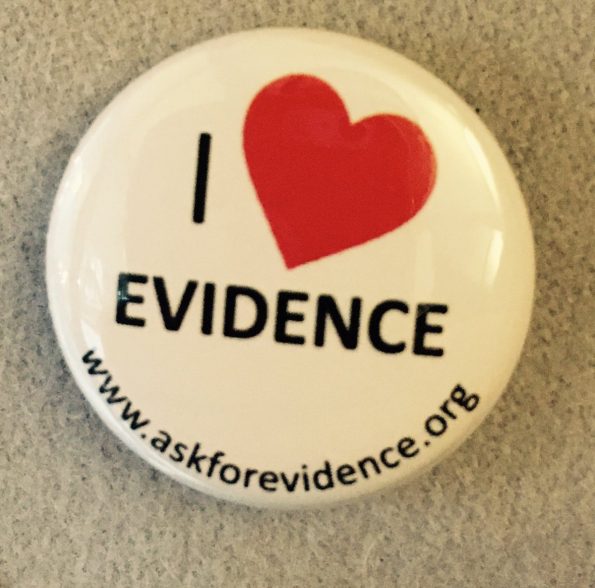
Select committees are a vital part of our democracy. They’re a place for all kinds of experts to inform policymakers and keep their decisions rooted in reality (in principle…). As this event was happening, MPs were in the Commons debating a major U-turn on a key part of the government’s week-old budget statement. That may be where the ‘glamour’ (and certainly the media) was, but the grunt work of government was happening in our room, as the scientists (and maybe political leaders?) of tomorrow got a taste of how our democracy functions, all while getting to voice our concerns to the Powers That Be.

Of course it was scripted. Of course all the questions and answers were canned. But they were damn good questions written by young scientists, and they needed to be asked. The fact that the MPs were made to understand that young scientists care about these issues (funding, Brexit, tech policy, education, etc.) is an important thing in and of itself. They work for us, and whether by writing letters, going to protests, or getting involved in events like this, they must never be allowed to forget that.
I want to express my gratitude to the IoP for allowing me to fill in at the last minute. I want to thank my friend Ben for helping to arrange for me to come. I want to thank all the friends I saw at the event (and thank you, Iulia, for your expert-level livetweeting). I want to thank all the MPs who came, all the Royal Society of Biology staff, especially Dr Stephen Benn, for organising everything, and the staff in the learned societies and in Westminster who made it all possible. It’s cheesy to say but it’s an event I’ll never forget.